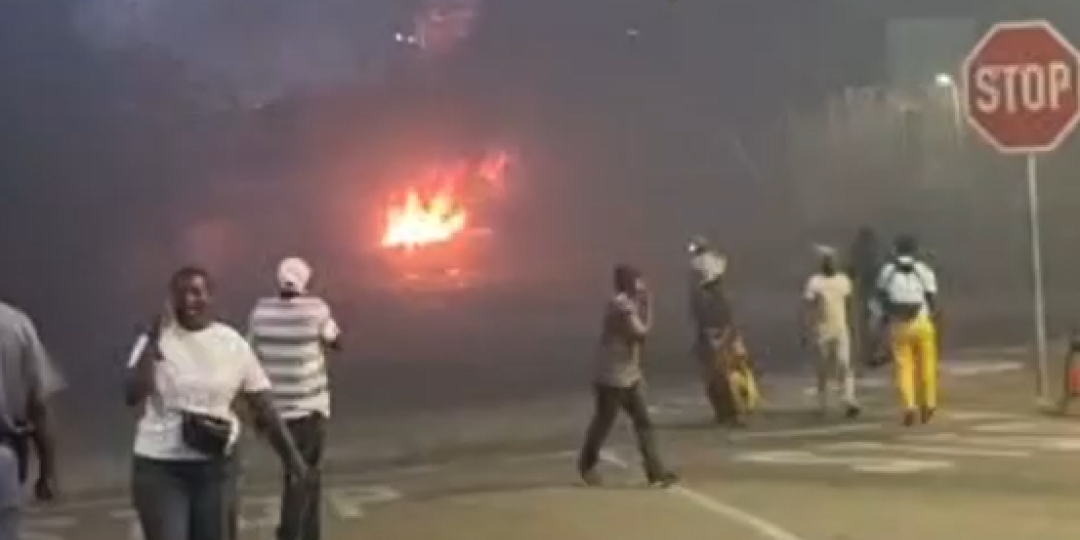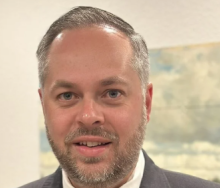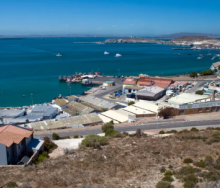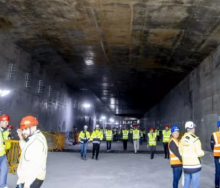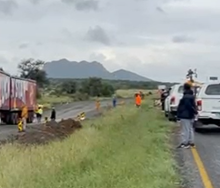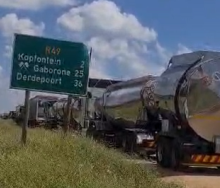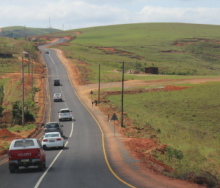Truckers, traders, tourists and officials working at or using the N4 Maputo Corridor between South Africa and Mozambique have been warned of “extreme volatility” and the perceived worsening situation of election-result unrest that has erupted in areas such as Ressano Garcia.
On Tuesday night the border town on the opposite side of the Lebombo Border Post at Komatipoort was covered in black smoke after protestors set fire to tyres, trucks, cars and buildings.
Crowds of people wielding sticks milled through the streets while police could be seen keeping a safe distance.
A border consultant assisting road freight on the important corridor to the Port of Maputo shared information stating that “post-election protests in Mozambique have become extremely volatile, with little official communication regarding the safety of cargo and passengers forthcoming”.
Although it appeared earlier this week that the situation had normalised, with ore trucks seized by protestors and used to obstruct traffic flow at the border, Ressano has become a no-gone zone.
Whilst executives from the public and private sectors cautioned that there is reason to be extremely careful, border authorities at Lebombo had decided to shut the border.
Safe refuge were also granted to border officials fleeing to safety from the Mozambican side of the border control area.
According to the border consultant, “the advice given is that the current situation is extremely tense with an anticipated increase in tensions tomorrow, Wednesday, Thursday and Friday, 6, 7 and 8 November.
“It is extremely likely that large-scale protests will spread, with considerable risk of violence. At present, access to the internet and VOP connectivity has been completely restricted, with only Starlink currently operational.
“It is strongly recommended that all travel to Mozambique is postponed until the situation is normalised.”
The government of Portugal, erstwhile colonial ruler of Mozambique, has also been drawn into the growing destabilisation that has been marked by the growing election unrest.
A report by Agência de Informação de Moçambique (AIM) said Portugal’s Minister of Foreign Affairs, Paulo Rangel, promised “to do ‘everything in its power’ to promote dialogue between political forces in Mozambique and prevent the Mozambican people from going through another ordeal.”
He said Portugal is “monitoring the situation very closely”, and condemned fatalities that apparently resulted from “acts of repression”.
Rangel said: “We are following the situation with a great desire for things to go well, for the results and electoral minutes to appear and be published, for there to be pacification and for political forces to dialogue so that Mozambique does not regress and can take a step forward”.
Whereas sporadic violence spread through the country, especially in Maputo after Frelimo claimed victory in the October 9 elections, it seemed that the Mozambican government was successfully clamping down on protestors.
But on on Monday, in the Mozambican Government, the Minister of Foreign Affairs and Cooperation, Verónica Macamo, asked for support from the international community to restore calm and peaceful coexistence.
AIM reported that during a meeting with the diplomatic corps accredited in Maputo, which aimed to provide a report on the general elections, Macamo explained that competing candidates and parties should respect electoral legislation, including the phases of the entire process and trust in the competent bodies to resolve issues electoral disputes.
On October 24, after Frelimo candidate Daniel Chapo was declared the victor, with 70.67% of the vote, Mozambique inched closer to a powder-keg situation.
Venâncio Mondlane, the candidate for opposition party Podemos, stated that he did not recognize result whereby his support was recorded at 20.32%.
Election observers from the European Union said that there appeared to be significant instances of “election irregularities”.
